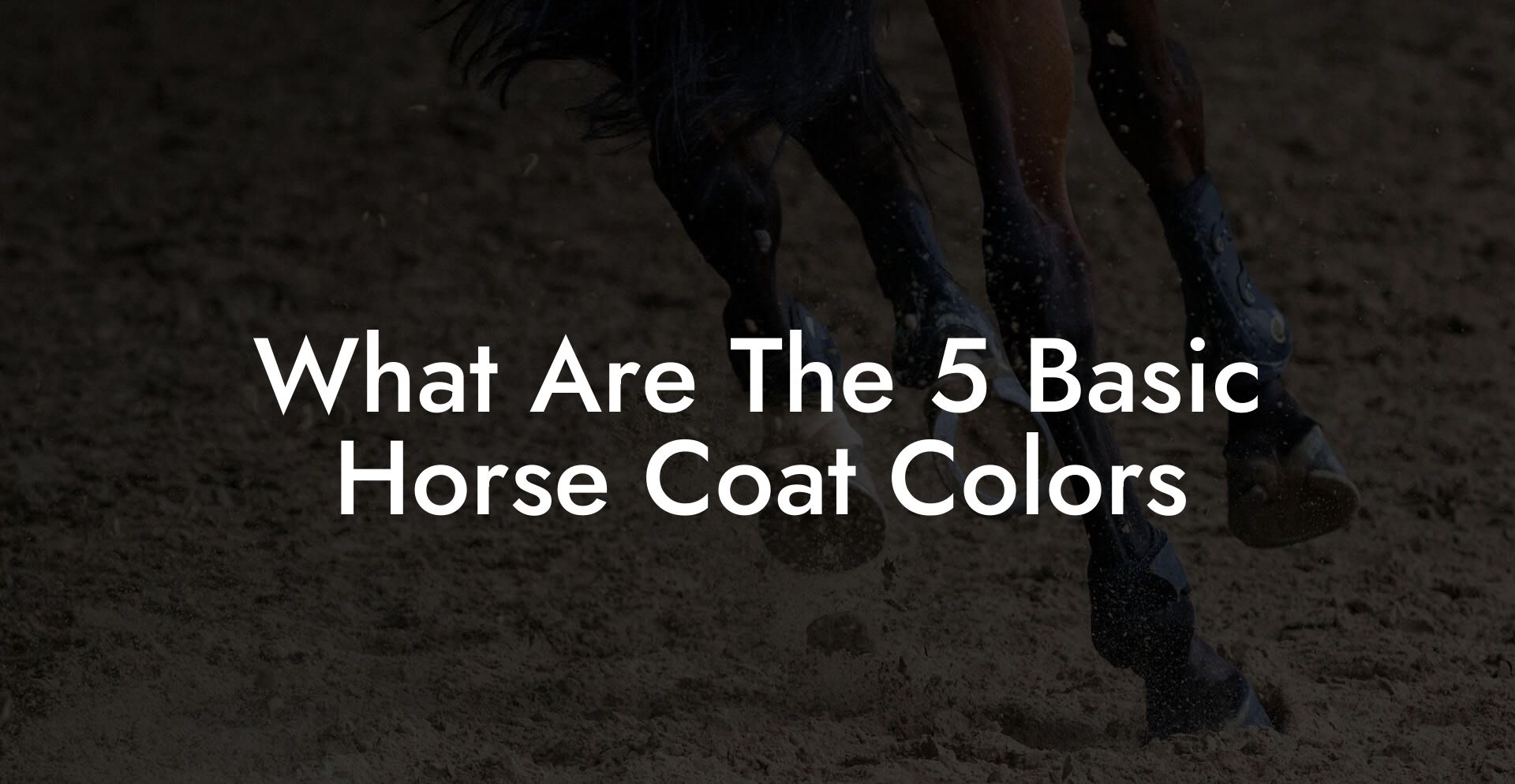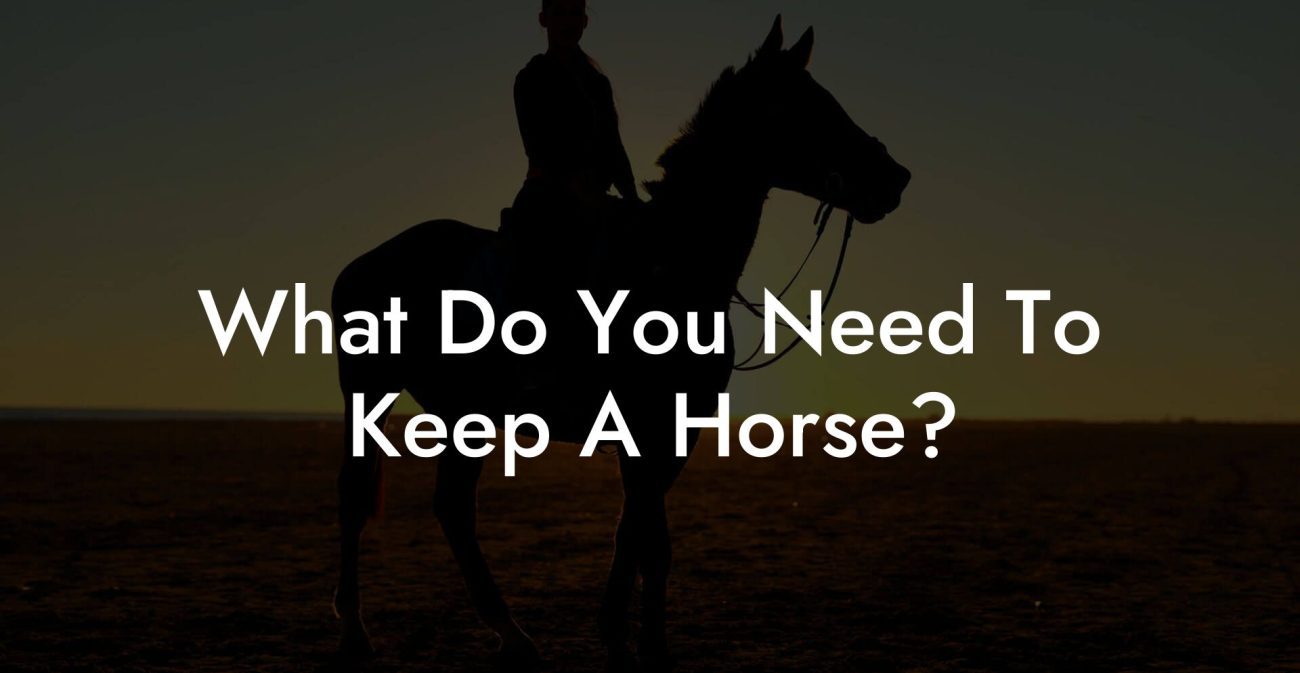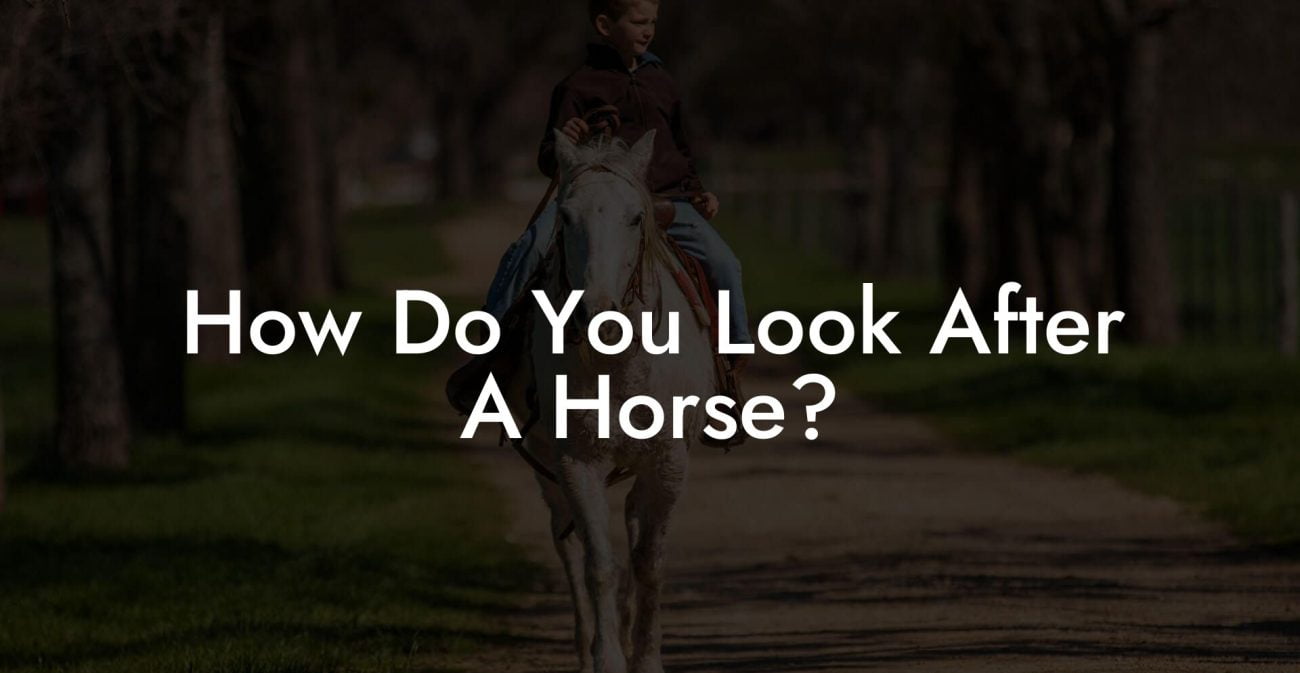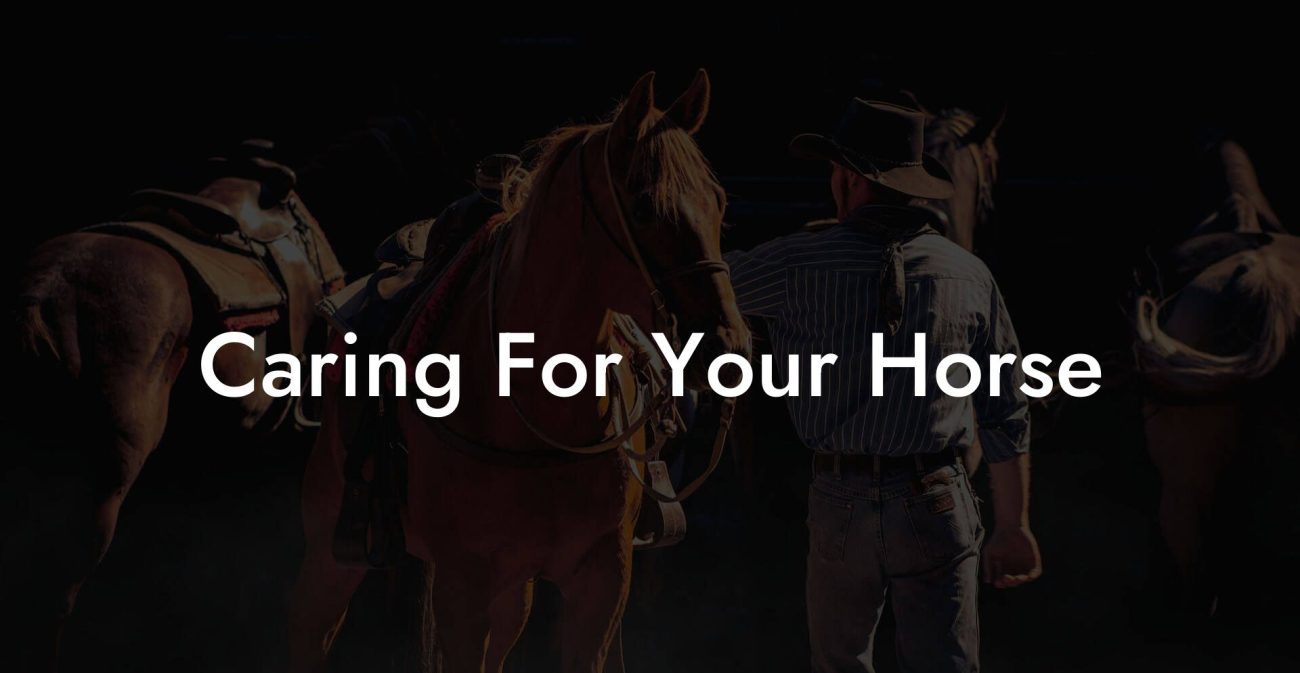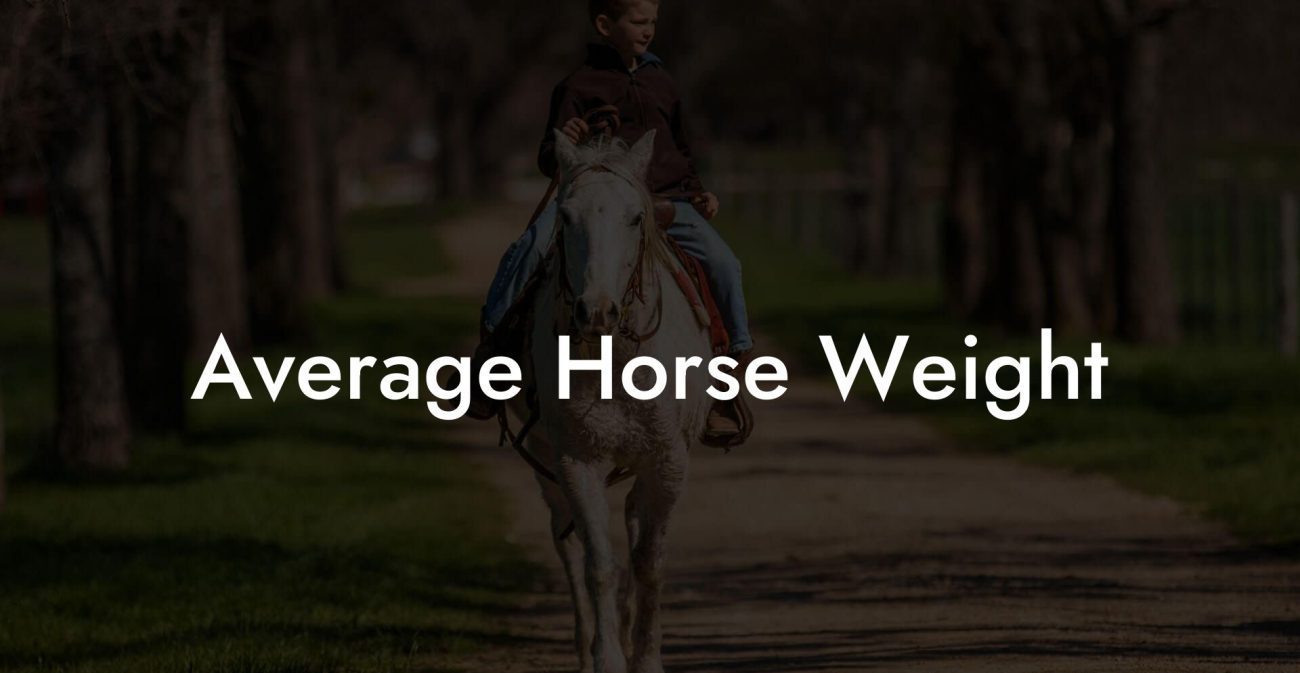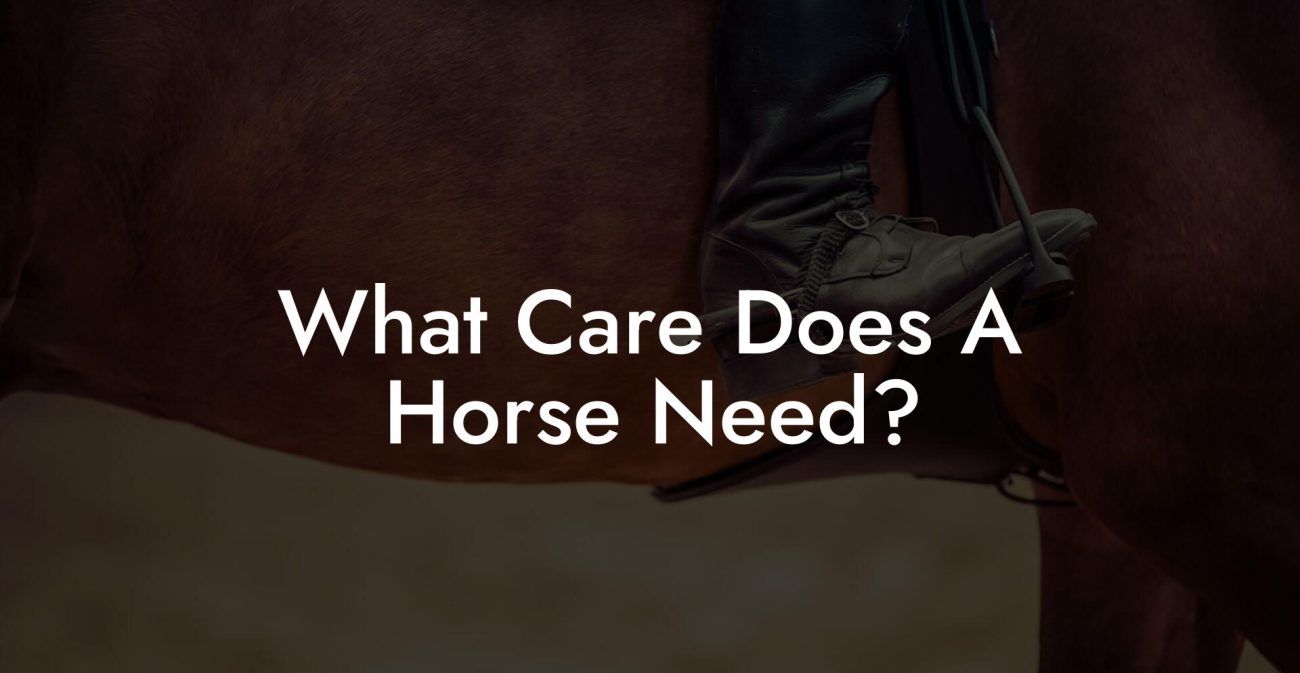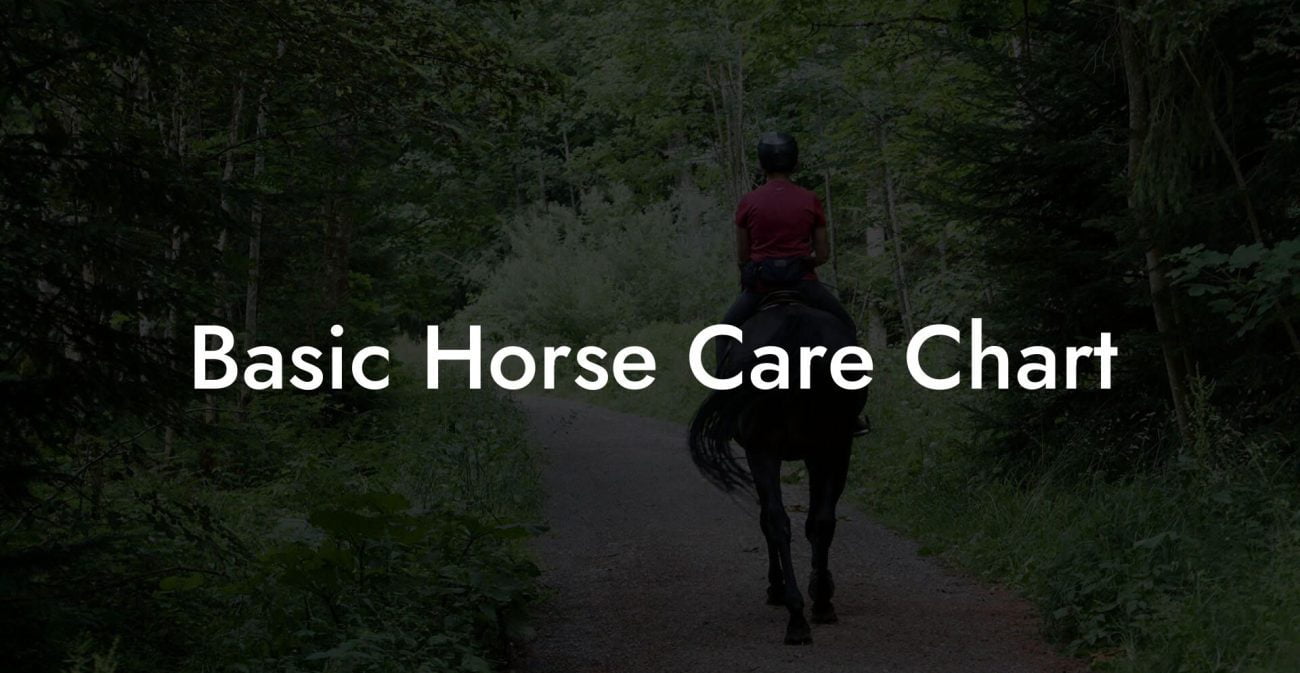The world of equine care is as vibrant and varied as the horses themselves, and if you’ve ever wondered what gives these majestic animals their dazzling array of colors, you’re in for a treat. Whether you’re a seasoned horse lover or a newfound enthusiast scrolling through your social feed, understanding the five basic horse coat colors not only deepens your connection with these stunning creatures but also empowers you with practical tips for grooming, health care, and overall equine well-being. Let’s dive into a colorful journey where science meets style, and tradition meets trend.
Quick Links to Useful Sections
- The Basics of Horse Coat Colors: A Kaleidoscope of Genetics and Care
- 1. Bay: The Classic, Warm-Hued Champion
- 2. Black: Sleek, Mysterious, and Ultra-Modern
- 3. Chestnut: Fiery, Spirited, and Full of Life
- 4. Gray: The Timeless Trendsetter
- 5. Roan: The Eclectic Mix of Tradition and Trend
- Applying Your Knowledge to Equine Care: More Than Just Looks
- From Genetics to Grooming: The Intersection of Science and Style
- Modern Grooming Technologies and Eco-Friendly Practices
- Style and Substance: Celebrating the Beauty of Genetic Diversity
- Practical Equine Care: Grooming Routines and Nutritional Tips
- Daily Grooming Rituals
- Seasonal Deep Cleansing
- Nutrition and Supplements
- Resources and Community Support: Your Next Steps
- Bringing It All Together: A Lifestyle of Colorful, Conscious Equine Care
- Frequently Asked Questions About Horse Coat Colors
- A Colorful Future: Innovate, Connect, and Care
The Basics of Horse Coat Colors: A Kaleidoscope of Genetics and Care
Horse coat colors aren’t just about aesthetics, they’re a blend of genetic artistry and evolutionary storytelling. Each coat color reflects a unique genetic makeup that not only creates visual allure but also influences certain care practices and even personality traits for some enthusiasts. In this comprehensive guide, we’ll break down the five basic horse coat colors, explore the genetics behind them, and offer actionable grooming and care tips tailored to modern horse owners who rock an eco-conscious, Gen-Z or millennial lifestyle.
The five basic horse coat colors we’re exploring are: bay, black, chestnut, gray, and roan. From the rich chocolate-brown hues of bay horses to the striking salt-and-pepper sheen of gray horses, each color tells its own story. Get ready to decode the mysteries of equine genetics while picking up pro tips on everything from grooming routines to maintaining healthy coats, even if you’re managing your stables from your urban loft.
1. Bay: The Classic, Warm-Hued Champion
Bay horses are the very definition of timeless elegance. With their rich reddish-brown bodies and contrasting black manes, tails, and lower legs, bay horses have captivated horse enthusiasts for centuries. The bay coat is not only visually striking but also versatile when it comes to performance and personality.
Understanding the Genetics: Bay is the result of a dominant gene called Agouti, which regulates the distribution of black pigment. Essentially, if a horse has at least one dominant Agouti allele alongside a black base coat, it will develop that signature bay coloration. Variations within the bay category can range from a lighter “sorrel” shade to a deeper, almost mahogany tone.
Grooming and Care Tips: Bay horses require regular grooming to maintain the shine and health of their coats. Regular brushing, especially with a soft brush for the body and a finer one for the mane and tail, helps distribute natural oils and keep the coat looking its best. For millennial horse enthusiasts juggling farm life and digital lifestyles, investing in high-quality, eco-friendly grooming products is a must.
When caring for a bay horse, always be mindful of the seasonal changes; summer grooming might require more frequent baths and conditioning treatments, while winter care should focus on deep moisturizing to combat dry, cold air.
2. Black: Sleek, Mysterious, and Ultra-Modern
If you’re drawn to bold, unapologetic style, black horses might just steal your heart. Known for their glossy, jet-black coats that seem to absorb every bit of light, these horses are often depicted as mysterious and elegant. But beyond their visual appeal, black horses have a lot to teach us about resilience and strength.
Genetics Behind the Look: The black coat color in horses results from the dominance of the Extension gene, which leads to a full spectrum of black pigment distributed uniformly across the body. While a horse’s genetics will dictate whether it is born black, there are instances where lightening occurs with age due to environmental factors, but the authenticity of a true black horse remains.
Keeping the Black Coat Shiny: For proper maintenance, black horses thrive on a consistent grooming schedule. Regular brushing helps eliminate dust and excess skin cells, which can dull the coat’s natural shine. Many modern horse owners also supplement grooming routines with natural oils or conditioners that are free from artificial chemicals, perfect for those who care about sustainability and animal welfare.
Additionally, protect your black horse’s coat from the harsh effects of sunlight and pollutants by providing plenty of shade and regular baths. The right balance of nutrients in their diet can also contribute to maintaining that lustrous color, proving that a holistic approach to equine care truly pays off.
3. Chestnut: Fiery, Spirited, and Full of Life
When you think of energy, passion, and a hint of wild spirit, chestnut horses immediately come to mind. Characterized by a warm, reddish-brown coat that can vary from a light golden hue to a deep, coppery finish, chestnut horses embody a blend of strength and gentle charisma.
The Genetics Unveiled: The chestnut coat is primarily driven by the lack of the dominant Extension allele. Essentially, without the black pigment modification, horses express the full range of red pigments. Chestnut horses may also feature variations like “flaxen” manes and tails, where the hair lightens considerably compared to the body, giving a sun-kissed glow that’s perfect for summer vibes.
Optimizing Care for Chestnut Coats: Keeping a chestnut horse’s coat vibrant requires a tailored approach. Regular brushing is vital, and many horse owners use specialized shampoos designed for red or copper-toned coats, which help enhance the natural glow. Since chestnut horses can sometimes appear a bit dull if not properly cared for, periodic massages can boost blood flow, giving the coat an extra bounce and energy.
Integrating natural supplements, particularly those high in omega fatty acids, can further promote a glossy, healthy coat. And for the socially savvy millennial herd manager, sharing your chestnut horse’s before-and-after grooming transformations on Instagram isn’t just fun, it’s a celebration of equine beauty and wellness.
4. Gray: The Timeless Trendsetter
Gray horses are nothing short of legendary in the equine world. With bodies that often shift from dark to a luminous, almost ethereal silver as they age, these horses carry an air of mystique and a hint of Hollywood glamour. Gray horses are not only eye-catching, but they also come with unique grooming challenges that keep even the most seasoned horse enthusiasts on their toes.
The Magic of Gray Genetics: Unlike other colors that remain static, gray coats undergo a gradual transformation over the years. Nearly all gray horses are born with a darker coat that lightens with age due to the progressive depigmentation of hair. This process is completely natural and is influenced by the gene that controls the gray pattern.
Tailored Grooming for a Gray Coat: Caring for gray horses can be a bit of an art form. Regular brushing helps remove loose hair and prevents matting, especially during seasonal shedding. Many horse owners also invest in specialized grooming brushes that are gentle enough for the delicate texture of a gray coat.
Bathing routines should be adjusted seasonally; cooler weather can slow the shedding process, while warmer months might require more frequent baths to manage oil build-up. For those who love DIY, natural conditioners made from ingredients like aloe vera and chamomile are fantastic for keeping a gray coat looking soft and vibrant.
Finally, maintaining proper nutrition is crucial for gray horses, as a balanced diet rich in vitamins and minerals supports hair health during the color transition. After all, a well-nourished horse is a happy horse, and a glowing one at that.
5. Roan: The Eclectic Mix of Tradition and Trend
Roan horses are the wildcards of the equine world, a perfect blend of colored hairs intermingled with white, creating a frosted or dusty appearance that’s both unique and unforgettable. This striking pattern is one of nature’s most captivating designs, and it’s beloved by horse owners who crave something a little off the beaten path.
Diving into Roan Genetics: The roan pattern is the result of an even distribution of white hairs among a colored base coat. Unlike grays, the roaning process does not change significantly with age; instead, it remains a consistent pattern throughout the horse’s life. This genetic trait is distinct and can occur in breeds that typically sport solid coats, making a roan horse a rare and prized specimen.
Keeping the Roan Radiant: Grooming a roan horse requires a careful touch. The mix of colored and white hairs means that maintaining an even, vibrant look is paramount. Use a soft, wide-tooth comb to disentangle any mats that might form and opt for natural shampoos that won’t strip away the delicate balance of pigments.
Regular brushing is especially important for roan horses to highlight the contrast between the hues and reveal the true depth of the coat’s pattern. And don’t underestimate the power of seasonal grooming, during spring and summer, when shedding is at its peak, a good de-shedding tool can work wonders without damaging those beautiful roan strands.
Pair your grooming routine with a nutrient-rich diet that promotes hair health, and your roan horse will continue to turn heads whether it’s at the show ring or on leisurely rides through scenic countryside trails.
Applying Your Knowledge to Equine Care: More Than Just Looks
Now that we’ve spilled the tea on the five basic horse coat colors, it’s time to look at how this knowledge translates into practical equine care. Understanding a horse’s coat color goes beyond mere aesthetics, each color can offer insights into grooming needs, seasonal care routines, and even certain health considerations.
For instance, while bay and chestnut horses might require regular conditioning to keep their rich tones vibrant, black horses may benefit from extra protection against UV rays and pollutants that can dull their sleek coats. Gray horses, with their ever-changing hues, need a balance of hydration and moderate grooming to ensure smooth transitions as they age. Roan horses, on the other hand, are all about maintaining that balanced contrast, which can be accentuated with the right mix of grooming and nutrition.
And here’s a neat bonus tip: tracking changes in your horse’s coat over time can help you identify shifts in its health. A sudden dullness, excess shedding, or patchy areas might indicate nutritional deficiencies or skin issues that require a vet’s attention. Thus, being well-versed in these coat colors gives you a secret superpower in proactive equine care.
From Genetics to Grooming: The Intersection of Science and Style
Let’s pause for a moment and appreciate how genetics and daily care routines intertwine in the world of horses. The science behind these coat colors isn’t just a fascinating chapter from a biology textbook, it serves as a practical guide for modern, holistic horse management. Whether you’re a DIY enthusiast or you prefer to rely on professional trainers and groomers, understanding the genetic basis of coat colors helps you tailor your maintenance routines.
Modern equine care tools, ranging from high-tech grooming kits to eco-friendly shampoos, allow you to celebrate your horse’s natural beauty while ensuring optimum health. Social media influencers, vloggers, and dedicated horse communities are constantly sharing innovative grooming hacks and genetic insights that make horse care both fun and deeply informed.
Remember, caring for a horse is about balance, pay attention to their coat’s condition, adjust your grooming schedule according to seasonal needs, and never underestimate the role of nutrition and overall wellness. In the end, a well-loved horse with a vibrant coat is not only a joy to behold but also a testimony to the care and attention of its owner.
Modern Grooming Technologies and Eco-Friendly Practices
As a forward-thinking equine enthusiast, you’re undoubtedly aware that technology and sustainability are game-changers in today’s world. From smart grooming tools that monitor coat condition to eco-friendly shampoos that reduce chemical waste, the world of horse care is rapidly evolving.
Many innovative products promise to make your horse’s grooming routine easier while also minimizing the environmental footprint. Imagine using a low-noise, cordless grooming brush that gently detangles your bay or chestnut horse’s mane, accompanied by biodegradable cleaning solutions specifically formulated for equine skin. These modern tools ensure that while you’re keeping your horse’s coat looking Instagram-worthy, you’re also taking care of the planet.
For example, companies are now developing smart sensors for stables that track temperature, humidity, and even airborne allergens, ensuring optimal conditions for your horse’s coat health. Integrating these devices into your stable management system can help predict when a thorough groom or a special treatment is due, effectively merging technology with traditional equine care.
By embracing these innovative practices, you not only elevate your horse’s aesthetic appeal but also contribute to a healthier, greener future, something that resonates with every environmentally conscious Gen-Z and millennial horse owner.
Style and Substance: Celebrating the Beauty of Genetic Diversity
Each horse, with its unique blend of coat colors, is a living canvas of genetic art. In today’s digital age, sharing high-quality images and stories of your horse’s coat transformation can foster a deeper community connection. Online forums, Instagram reels, and TikTok compilations have become popular platforms where horse owners exchange tips on everything from brushing techniques to understanding genetic patterns.
Beyond social media, community events like local horse shows, webinars, and equine meet-ups offer opportunities to celebrate the vibrant diversity of horse coat colors. These gatherings are not just about showing off a glossy coat but also about sharing knowledge on proper grooming, nutrition, and general well-being. Engaging with fellow enthusiasts can spark fresh ideas and collaborations, maybe even a viral trend showcasing the “before and after” transformations of your horse from drab to fab.
Remember, each coat color, whether it’s the classic bay, enigmatic black, fiery chestnut, ever-changing gray, or eclectic roan, is a testament to the rich genetic tapestry that makes horses so captivating. And by highlighting these differences, you contribute to a larger dialogue about diversity, care, and the importance of individualized attention in equine management.
Practical Equine Care: Grooming Routines and Nutritional Tips
Let’s shift gears and get into the nitty-gritty of practical care for your equine friends. In addition to understanding the basics of horse coat colors, lifelong horse owners know that day-to-day care is what truly sustains their horses’ beauty and health. Here are some hands-on tips and routines to incorporate into your schedule:
Daily Grooming Rituals
Whether your horse is bay, black, chestnut, gray, or roan, a consistent grooming routine is foundational. Start your day by removing dirt, dust, and loose hair using a soft curry comb followed by a slicker brush. This not only promotes circulation but also distributes natural oils through the coat. For those mornings when you’re short on time, a quick wipe-down with a damp cloth can work wonders.
Seasonal Deep Cleansing
As the weather shifts, so should your equine care routine. Summer months call for a few extra rinses to combat sweat and dirt buildup, while winter requires moisture-rich shampoos and conditioners to protect against dry, brittle hair. Scheduling a professional grooming session quarterly can also provide a deep clean that rejuvenates your horse’s overall appearance.
Nutrition and Supplements
A glossy coat starts from within. A balanced diet that includes high-quality hay, grains, and fresh pasture is essential for any horse. For those looking to amp up their horse’s coat quality, consider supplements rich in omega-3 and omega-6 fatty acids, as well as vitamins like A, E, and B-complex. These nutrients not only support a healthy coat but also boost the immune system and muscle recovery.
Moreover, hydration plays a crucial role. Always ensure that your horses have access to clean, fresh water, especially on hot days, as dehydration can lead to dull, lackluster coats and other health issues.
Integrating these practical care routines with your regular veterinary checkups creates a holistic approach to equine health, where every brush stroke and every nutritious meal works together to keep your horse vibrant and thriving.
Resources and Community Support: Your Next Steps
Embarking on your journey to understand and care for your horse’s coat is just the beginning. Today’s equine community is rich with resources, advice, and camaraderie that spans online forums, local clubs, and social media groups dedicated to horse care. Whether you’re hunting for tips on sustainable grooming products or seeking advice on nutritional supplements, there’s a wealth of information at your fingertips.
Look out for workshops and webinars hosted by veterinary experts and seasoned groomers who share their insights on everything from coat genetics to cutting-edge equine care technologies. Participate in local horse shows and festivals where you can see, touch, and learn about different horse breeds and their unique coat patterns.
For those craving a sense of community, joining online groups and following dedicated hashtags on Instagram or TikTok can offer daily doses of inspiration and expert advice. Sharing your own grooming successes and challenges helps build a network that is as much about providing support as it is about celebrating the beauty of your equine companion.
Your next steps might include subscribing to reputable equine care blogs, attending industry expos, or even signing up for newsletters from eco-friendly grooming product companies. With the fusion of traditional wisdom and modern innovation, your horse care routine can evolve into a lifestyle passion that connects you to a global community of like-minded enthusiasts.
Bringing It All Together: A Lifestyle of Colorful, Conscious Equine Care
Embracing the knowledge of the five basic horse coat colors, bay, black, chestnut, gray, and roan, allows you to appreciate not just the aesthetics, but the fascinating interplay of genetics, environment, and dedicated care. Each color embodies a story that resonates with personal style, environmental mindfulness, and a commitment to holistic horseshoe management.
In today’s busy world, where every swipe on your smartphone might be accompanied by a double-tap on a gorgeous horse photo, understanding your horse’s coat isn’t just a niche interest, it’s a step towards nurturing a living companion that brightens your days. The grooming routines you set, the sustainable products you choose, and the community connections you forge contribute to a legacy of conscientious equine care.
So, whether you’re treating your bay horse to an extra-long brushing session, providing your black horse with natural conditioners, or carefully selecting supplements to enhance your chestnut’s coat glow, remember that every effort is part of a bigger picture. It’s a picture where your passion, science, and care converge in the colorful world of horse ownership.
Step into this vibrant world with confidence and love, each brush stroke, every nutrient-packed meal, and each shared equine adventure builds a legacy worth celebrating. Your journey toward empowered, conscious equine care begins with the simple, but oh-so-powerful, knowledge of what makes each horse uniquely beautiful.
Frequently Asked Questions About Horse Coat Colors
Below are some common questions many new and seasoned horse owners ask about horse coat colors, along with expert insights to help you make informed decisions in your equine care routine.
1. What exactly defines a “basic” horse coat color?
In equine genetics, the term “basic” coat color refers to the primary color an animal is born with before any additional markings or modifications. In this guide, we focus on the five most recognized basic colors: bay, black, chestnut, gray, and roan.
2. How do genetics determine a horse’s coat color?
A horse’s coat color is controlled by several genes. For instance, the Agouti gene restricts black pigment to create the bay color, while the Extension gene influences whether the base color is black or red. Roaning, on the other hand, results from a unique interplay where colored hairs are mixed with white hairs.
3. Does a horse’s coat color affect its care requirements?
Yes, different coat colors can require slight variations in care. For example, black horses might need more protection against UV light, while gray horses may require adjustments during seasonal shedding to maintain coat luster.
4. Can the coat color of a horse change over time?
Absolutely, gray horses are a prime example, as they are born darker and gradually lighten with age. Some chestnut horses may also experience shifts in the intensity of their color due to environmental factors and nutrition.
5. What are the best grooming practices for maintaining a vibrant coat?
Maintaining regular grooming routines that include brushing, seasonal bathing, and using eco-friendly, nutrient-rich conditioners will help preserve the natural shine and health of your horse’s coat. Tailor your routine to the specific needs of your horse’s coat color.
6. How does nutrition impact a horse’s coat condition?
A well-balanced diet, rich in essential vitamins, omega fatty acids, and proteins, is crucial for maintaining a healthy coat. The right nutrition supports skin health, improves the texture of hair, and can even enhance the natural color.
7. Are there technological tools to monitor the health of a horse’s coat?
Yes, recent advances have led to smart grooming tools and sensors that can help monitor skin and coat condition. These devices can track temperature, humidity, and other environmental factors that may affect your horse’s coat health.
8. What should I do if I notice changes in my horse’s coat condition?
Sudden changes such as dullness, unusual shedding, or patches might indicate nutritional deficiencies or skin conditions. Consult your veterinarian for an evaluation and adjust your grooming and nutrition routines accordingly.
A Colorful Future: Innovate, Connect, and Care
As you continue to explore the dynamic universe of equine care, remember that understanding the five basic horse coat colors is just the starting point. Each brush, every nutrient, and all the innovative tools at your disposal contribute to a vibrant tapestry of care that celebrates both tradition and modernity.
By integrating genetic insights with hands-on grooming techniques and sustainable care practices, you create an ecosystem where your horse not only looks its best but also thrives in a healthy, nurturing environment. Modern tools and online communities are here to support you; share your experiences, learn from others, and keep pushing the boundaries of what it means to care for these magnificent animals.
In a world where authenticity, innovation, and self-expression are highly valued, let your passion for horses radiate through every detail of your care routine. Embrace this colorful journey with pride, creativity, and a commitment to holistic equine well-being. After all, every time you pick up the brush or whip out your phone to join an equine care forum, you’re not just maintaining a coat, you’re preserving a legacy of beauty, health, and connection.
Now is the time to celebrate the unique tapestry of color in every horse, and to let your enthusiasm shine as brightly as those glossy coats you work so hard to maintain. Here’s to a future where equine care is as dynamic, innovative, and diverse as the horses themselves!

